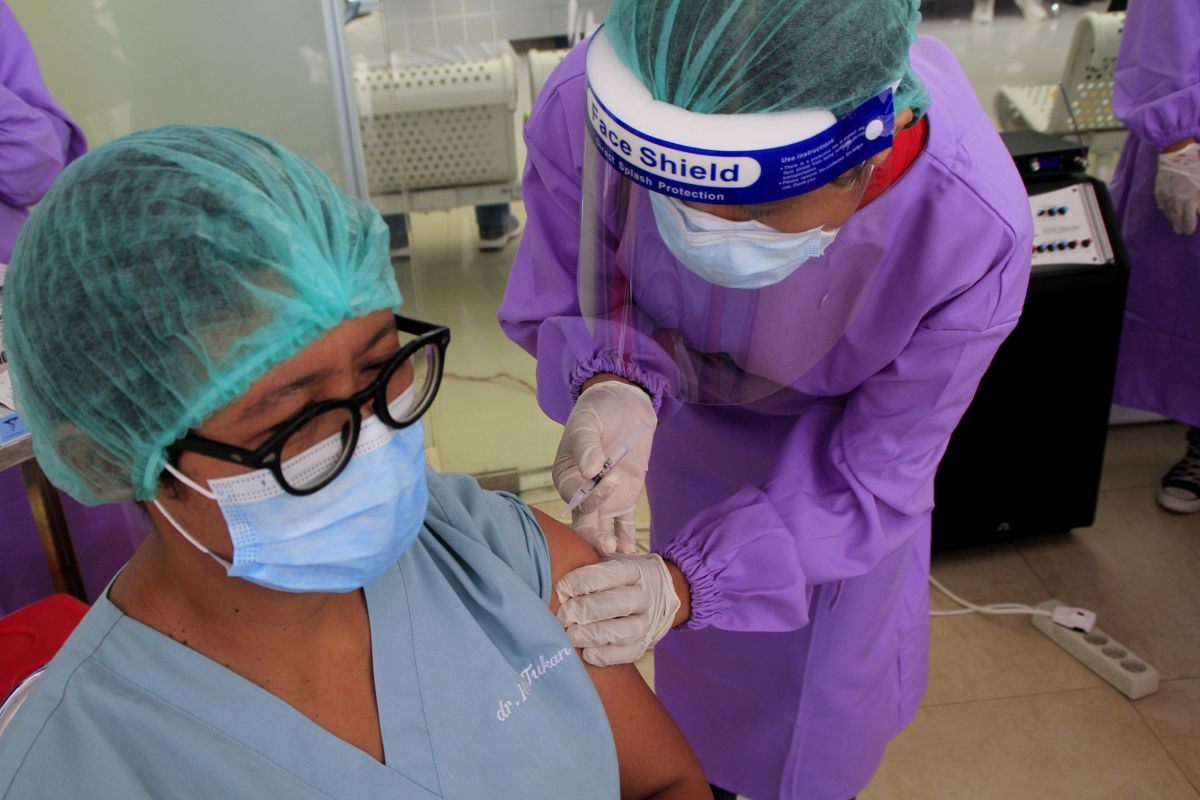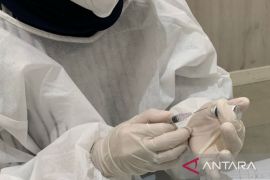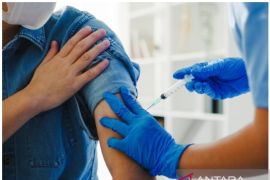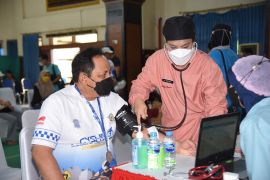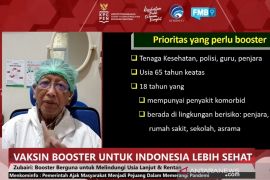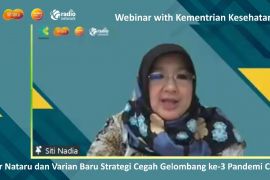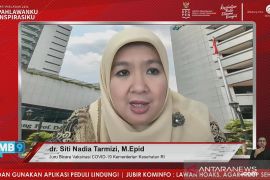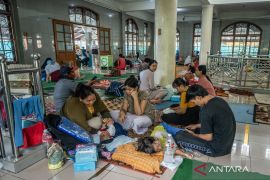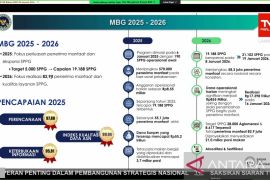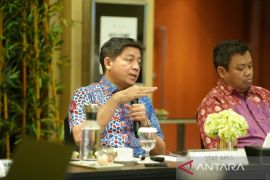There has been a lot of research abroad on heterologous vaccines. This is a preference because it provides multiple protection. So the antibody which is then injected with a heterologous booster will be richer than the homologous vaccineJakarta (ANTARA) - For more than two years, the COVID-19 pandemic has hit Indonesia. Not only affecting the health of 4,480,423 people across the country, the disease caused by SARS-COV-2 virus has also killed 144,497 people, according to data from COVID-19 Task Force as of February 5, 2022.
It has not only disrupted public health, the pandemic has also caused an economic crisis, millions of people are unemployed and increased poverty rates in almost the entire country.
Besides having a tremendous impact on health and the economy, the pandemic has also affected social life, education, security, religion, tourism and other sectors in every line of people's lives. It does not only affect people in urban areas, as people in rural areas are also affected by the pandemic.
To overcome it, the government has taken many steps, but the pandemic caused by the SARS-COV-2 virus continues to mutate to form new virus variants and continues to spread throughout the country, causing a prolonged pandemic.
Hence, the government needs the right solution to suppress the spread and end the pandemic.
Related news: Minister asks older adults to stay home amid Omicron threat
A number of steps have been taken to deal with the pandemic, starting from testing, tracing and treating (3T) that have been carried out since the beginning of the pandemic, then the government also calls on the public to strictly implement health protocols, including washing hands with soap, wearing masks, keeping distance from other people, away from crowds, and also limiting mobility (5M).
Besides the 3T and 5M policies, the government has also implemented a number of policies to limit people's mobility so that the potential spike in cases due to the spread of the virus, which is transmitted through droplets, can be suppressed. The restriction policies include large-scale social restrictions (PSBB) and then the implementation of restrictions on community activities (PPKM) which are carried out in stages according to the case level in a certain area.
Then, the government has also intensified vaccination for COVID-19 with a target of 208 million people, including vaccinations for medical personnel, public workers, elderly community groups as well as vaccination for children.
The COVID-19 vaccine is aimed at reducing the severity when a person is infected with the disease. The COVID-19 vaccine also serves to increase protection from COVID-19 disease.
Related news: "Bandung limits face-to-face schooling to 50 percent of class capacity
Booster vaccine
The government has made various efforts to deal with the virus among others by accelerating the vaccination drive, but the COVID-19 vaccine has an effectiveness for about six months, causing protection from potential exposure to the virus decreases.
Meanwhile, in the midst of ongoing vaccination efforts by governments in various countries to provide protection and create herd immunity for the community, a new variant of the coronavirus Omicron is spreading around the world at an unprecedented speed, according to the World Health Organization (WHO).
Hence, to prevent the spread of the new variant, the government is launching a third dose of vaccination or better known as a booster vaccine to extend and increase vaccine protection from exposure to SARS-CoV-2 .
"So even if there is a decrease due to virus transmission, but then we give a booster. That's the goal, to increase protection again," said the spokesperson for the COVID-19 Vaccination in the Health Ministry when contacted by Antara, Jakarta, Monday.
The booster vaccine is given to groups of people aged over 18 years, with a target of around 180 million people and prioritized for the elderly and those with comorbidities.
"So all districts and cities can already give this booster vaccination. But the elderly and comorbid sufferers still come first," he said.
Related news: 19 confirmed Omicron cases found in Riau Islands
For dosing, there are two types of booster vaccination, comprising heterologous and monologue booster vaccinations. Monologue booster vaccination is when the type of vaccine at the third dose is the same as the type of primary vaccine for the first and second doses. While a heterologous booster vaccine is when the type of vaccine given for the third dose is different from the type of vaccine given at two doses first.
For people who receive the monologue booster vaccine they will get one dose of the vaccine. While those who received the heterologous booster vaccine were given only half the dose.
Indonesian Health Minister Budi Gunadi Sadikin stated the reason for the government to provide a half-dose heterologous booster vaccine is for safety.
"There has been a lot of research abroad on heterologous vaccines. This is a preference because it provides multiple protection. So the antibody which is then injected with a heterologous booster will be richer than the homologous vaccine," he said.
Related news: Train travel demand unaffected by Omicron: KAI
In the meantime, for people who want to get a booster vaccine, they should have received at least the full dose of the vaccine six months earlier. The public can register it through PeduliLindung application or by coming directly to the vaccination site provided, than they need to show an identity card and a complete vaccine dose certificate.
Although many efforts have been made by the government to protect the public from the pandemic, public is still reminded to continue to apply strict health protocols since the vaccines cannot prevent transmission, but rather to reduce the severity when someone is infected with the virus.
Health protocols that are strictly implemented are believed to be effective in protecting the body from exposure to COVID-19.
Related news: Floods swamp Pekalongan villages, forcing 105 people to take refuge
Related news: Malaysian GM succumbs to COVID-19 in Central Kalimantan
Editor: Fardah Assegaf
Copyright © ANTARA 2022
